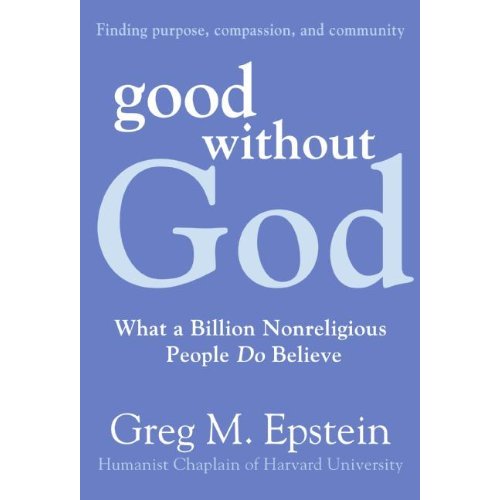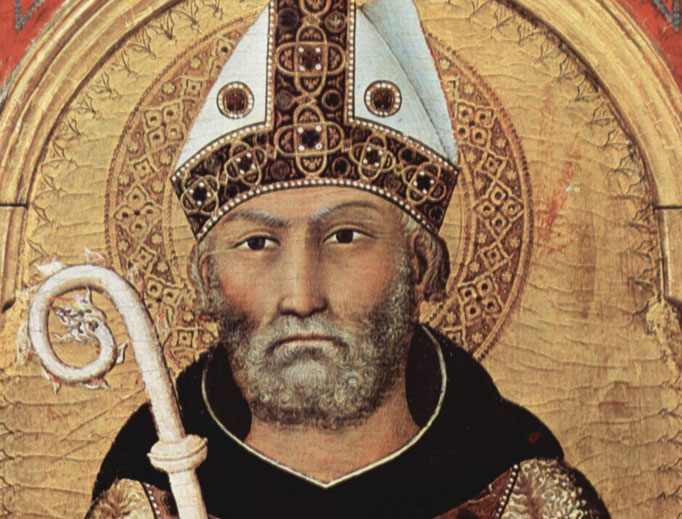Big Idea: Humans do not need any kind of deity to inform us on goodness. The idea purported by religious people that non religious people simply cannot be good unless God is in the picture is absolutely reprehensible. The human is good because we have evolved to be so as a survival mechanism. We evolved to see the value in taking care of our kin. We’ve come to understand the helpfulness of reciprocity, (mutual back scratching). We are keenly aware of the value of a good reputation, and we’ve discovered that greater personal health is the result of unselfish actions. It is for these reasons, not any divine reason, that humans are good to each other. We have bound ourselves to living out these discoveries through social contracts, and through the inner voice that is inside of every human. Ultimately, what matters is dignity, dignity is embodied in the golden rule and is brought to full flower in an atmosphere of freedom and equality.
What I liked: Epstein is very critical of romantic love, as am I. Understanding love as merely some sort of mystical feeling based connection devoid of commitment and self sacrifice has been a really bad idea for human flourishing. Epstein is also a strong proponent monogamy, as am I, how with his philosophy, he arrives at this position with such conviction is a mystery that alludes my ability to solve, but at least I agree him.
What I did not like: In short, a lot. I will be as brief as possible highlighting only the major points of disagreement. The review would become tedious if I attempted to counter everything that I objected to.
- His victim mentality reaction to something he entirely misunderstands. Right here in the seed of inspiration for his book he stumbles. Epstein is convinced that religious people think it’s impossible for him to be good without God. He is hurt, wounded, insulted, and angry at such a suggestion. He cites C.S. Lewis, Tim Keller, Rick Warren, and Al Mohler to substantiate his accusation against Christians. In all his efforts Epstein grossly misrepresents Christian thought. All Christians every where believe that all people are capable of doing good deeds. Yes, Christians believe that all people are sinners in need of a saviour, so in a real sense no human is truly good without God’s salvation, however, no Christian believes that a person is incapable of good works. The question for the Christian as it relates to doing good things in the world is not can you be good without God, it is how does one determine what good is? That’s the question. With follow up questions being, If goodness is not an absolute how can one know it or enforce it? or Why be good if God doesn’t exist? Finally Epstein gets around to answering these questions sort of, but not before he wastes entirely to much ink getting all hot and bothered rebutting something Christians don’t even believe.
- His punting Hitler to the Christians. While he is all worked up, he makes a misguided attempt to communicate to his readers that Christians are more than likely the bad guys, since Hitler was a Christian. Really? Yup, Hitler said he was doing God’s will once and he made sure the belt buckles of his soldiers had inscribed on them “God is with us” — see he is a Christian. I wonder if anyone would conclude that Epstein was a Christian if they found a U.S. dollar in his pocket — see, right there in his pocket it says “in God we trust.” In truth, as early as 1935 Hitler was foaming at the mouth claiming that Christianity in it’s accepted form was an invention of the dirty Jew. He claimed that national socialism (Nazism) was the true fulfillment of Christianity. One could only be a true Christian if he was part of the Nazi party. Hitler lamented the fact that his country was rooted in Christianity, it’s principles of grace, mercy and forgiveness were weak and revolting to him. He is on record for wishing that Germany had been rooted in Islam or Paganism, according to his thinking those religions were more conducive to his principles of evil, hate, and violence. When the confessing Protestant church and the Roman Catholic church resisted Hitlers hostile takeover of Christianity, he killed them. He had good reason however because it was these Christians (not humanists) that were committed to his overthrow.
- His cavalier acceptance that evolution somehow proves origins – “We accept the scientific evidence for evolution as overwhelming” With that simple sentence Epstein concludes that he knows with reasonable certainty how life originated. A conversation about origins has nothing to do with science or evolution. Any position on origins requires a massive step of faith that probably should be discussed. But its not important to Epstein, to him evolution is true, God is beside the point, moving on.
- His belief that Mother Teresa is bad like Hitler – He links the two. What was Mother Teresa’s great sin that puts her in the company of a “Christian” such as Hitler? She failed to embrace Epstein’s worldview that accepts sexual freedom in all it’s forms. Never mind that she gave her life up for the good for the poor. Anyone who doesn’t have the same life stance as Epstein better be careful, they might end up on the bad boy bus with Hitler.
- His understanding of good lacks a moral imperative. According to Epstein, the human cannot with 100% certainty know what is good and what isn’t, however, he suggests goodness is connected to human need and interest. Trial and error, is the only mechanism to figure out the mystery of goodness and social contract is the only means to enforce it. Simply stated goodness is determined by self interest, pragmatism, and majority rule (if you happen to be in a democracy) Epstein isn’t totally comfortable with this so he makes statements like “of course rape is bad, you don’t need a God to figure that out.” but what if a culture decides that there is a need and an interest in rape? What if the powers that be form a social contract that make it so? What can be said? What can be done? Epstein knows that he is on thin ice, because this has happened in the past and is happening currently. (In Africa, South East Asia, and some Western sub-cultures) Even more unnerving for a humanist like Epstein is the use of social darwinism, an invention of humanism, to justify such brutalities upon the undesirable, unwanted, and unhealthy. What is his response? “Even though this has happened in the past it doesn’t mean we ought to do it now.” However “ought” implies a moral imperative, and where does the moral imperative come from in this system? That’s a good question, with no answer, which creates a huge problem. C.S. Lewis is still right, when absolute morality is debunked only “I want” remains. We can only hope that we humans will “want” the right things, the human track record however, doesn’t support this hope.
- He misunderstands the relationship between faith and reason. He says reason is more important than faith, but any philosopher understands that reason is always rooted in faith.
- He glosses over humanisms dark side, and then blasts the Bible without explanation. Marx, Nietzsche, and Darwin all had some massive earth altering humanistic thoughts. Stalin adopted Marx’s thinking and killed more people than anybody. Hitler adopted Nietzsche’s thoughts, not Jesus Christ’s, and plunged the world into the greatest war ever. Margaret Sanger adopted eugenics which comes directly from Darwinian thought and pushed hard for the forced segregation and sterilization of undesirables. He spends almost no time wrestling through these very challenging problems that come with humanistic thought. He ignores them or dismisses them in a sentence or two as misrepresented and that’s it. He then quotes a couple Bible verses that appear to paint women as inferior to men and slavery as a justifiable option. This is his launching pad to ridicule the Bible and those who believe it to be true. Of course he doesn’t actually look at the context of those verses, or wrestle with what scholars have written about them. He just blasts away.
- His use of tired old reasoning to dismiss the idea of God – In four different places in the book Epstein posits that If God is real and all powerful, yet allows so much suffering in the world, he must be evil or powerless. In either case, this God who doesn’t fashion the world as Epstein would wish it is beneath his dignity to worship. I get it. There is nothing new here. The world is a messed up place. Why? The Christian has a ready answer. But Epstein isn’t really interested in hearing it. The humanist has no answer, and no real reason to care either, save maybe self preservation, which has little to do with authentic caring. So the humanist does a curious thing, he yells at a God that doesn’t exist, for not doing more to help the mess that is the world.
- Silly word games – He recognizes that all is not rosie in the humanist world, what does he do? He says, “oh, that bad stuff, that’s secularism not humanism.” Without humanism we do not have secularism.
- His careless merging of religions. He refers to the Wahabi and Evangelical Christians as essentially the same. This is simply not true. A pang of guilt should be felt in the heart of anyone who with such broad brush strokes links the muslim sect that produces Al-Qaeda with evangelical Christianity. The two groups are in different universes of philosophy, belief, theology, and practice. Anyone who suggests otherwise is either completely mis-informed or sinister.
- His disdain for historical accuracy — Epstein shares three ancient religious narratives, one of the Buddha, one of the biblical character of Job and one of Jesus. He completely butchers all three stories, misquoting and misrepresenting the narratives with gleeful impunity. In the end, he dismisses his care free retelling of these stories by indicating that it’s impossible to know history anyway. This is not scholarship, this is junk.
- His dismissal of Christian charity as “soul saving” and not really caring — Virtually every hospital, orphanage, soup kitchen, recovery program, educational institution and charity of any kind In the West and countless places around the globe were started by Christian people to help others. Epstein ignores all this, digs around for a while until he finds a story about some humanist nurses in Boston who for a few years help some sick people. He praises their actions and takes a poke at Christians by saying “see these nurses were actually interested in helping people not saving their souls” Christians are supremely motivated to help people because its right. A concept humanists are unable to embrace. Humanists help people for a litany of reasons but never for an absolute reason which is why Christians will always take the lead in helping people in need.
- His standard fare complaints against the wickedness of Christianity – The crusades come up, and so does the inquisition. Yes, countless atrocities have been committed in the name of some deity. Countless more have been committed without the invocation of a god’s name (Joseph Stalin, Pol Pot, Mau Zedong, Kim Jong-il, Idi Amin, Vladimir Lenin to list a few) none of which, conveniently enough are discussed in this book — A “body count” to determine whether the idea of “God” or “no God” is better is hardly a worthwhile exercise. Why does he bring it up? I’m not sure he want’s to educate as much as he wants to inspire a disdain for world views other than his own.




